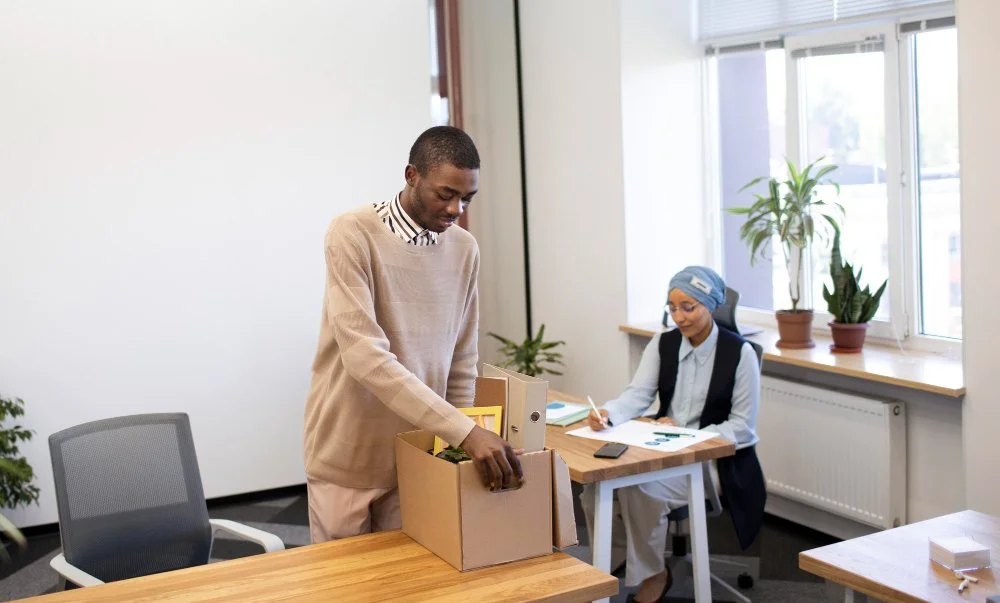The Journey of Dignity: Why Refugee Employment Matters
While earning a living is certainly one key component of the potential that employment holds, it isn’t all. A job offers many of us a framework for activity, meaning and dignity, an effective tool for engagement and a place to belong. For refugees who have usually fled war, persecution and poverty, work acts as an essential rehabilitating force when they arrive. Being allowed to work allows them to once again to support themselves and their families and regain a sense of dignity after enduring massive trauma.
Adapting to the landscape and finding meaningful work can be particularly complicated for refugees as they often contend with extensive language training, poor financial prospects and unfamiliar job markets, while also leveraging a wealth of professional skill from their past experience. When refugees can access job opportunities, they have the potential to feel like they again have control over their economic wellbeing. In fact, work fosters crucial elements of our human identity—our dignity, our independence, our place within the community—and employers in Australia are offering this to refugees who want to become active members of the local economy.
Restoring Dignity Through Work
Once they arrive, most refugees come to Australia with low levels of employment, either because these skills aren’t recognised, due to war trauma and displacement, or because they risk being re-traumatised by going into a job market that’s often full of barriers. Employment is fundamental to re-establishing an identity and sense of purpose following displacement. Most of my life has been defined by migration, as my parents and I fled Romania when I was a child. During our 15-day, 5,000km journey to freedom in Austria, we shared the train with other people, some affectionately called ‘the boat people’. When we were finally allowed to leave Romania and fortunately made it to the US through a lottery system, my parents searched anxiously for work.
A job is much more than a necessary source of income. It restores self-respect and gives a feeling of one’s own presence. For refugees, work is a key marker of their integration into the society that hosts them. It makes them feel part of a community and gives a sense of solidarity that is crucial for mental and emotional wellbeing.
Through such attempts to recruit and integrate refugees into the workplace, employers are not merely loving their neighbour by rebuilding lives; they are engaged in the ministry of rebuilding society itself. Refugees in paid work suffer from lower levels of depression and anxiety than their unemployed counterparts. Healing, in other words, comes from a shift of perspective: from what happened in the past to what work might be possible for today.
Economic Independence and Self-Reliance
Work means that individuals can become less dependent on government welfare and charity. The move from a position of dependency to independence is central to refugees’ longer-term success in Australia: when they can start earning, refugees can determine their own futures and plan for their families. They also strengthen the economy through spending and tax payments.
For refugees, paid work brings about greater self-reliance. They can support their families, invest in their children’s future and afford housing. Work also gives them new skills and experiences and improves their employability. This in turn can help them find jobs later on.
So, the transition from dependency to independence is a win-win, not just for refugees, but for more broadly for the community as a whole. When refugees work, they increase participation in local economies, strengthen local businesses, and reduce pressure on social welfare expenditure. Economic integration is conducive to more rapid settlement of refugees into Australian society.
A Win-Win for Employers and Refugees
When employers hire refugees, those employers are not only giving refugees an opportunity to have dignity and self-sufficiency, but they are also bringing on board a dynamic and talented workforce hungry to learn, with useful experience, skills and qualifications that can be a great asset to many Australian businesses. But it isn’t just the new people who bring changes. There are rifts in the healing settled heart That once made up the whole.
Moreover that employ refugees will send a clear signal to consumers, employees or clients about the company’s willingness to foster diversity, inclusion and social responsibility – now a crucial aspect in the profit-generating question facing business should not be: ‘Can we employ this refugee?’ but rather: ‘Can we afford not to?
Conclusion
This obviously isn’t just about overhead or workplace issues, but about restoring people’s dignity and independence, giving them the chance at a life that others take for granted. By letting refugees work, Australian businesses can rebuild lives, strengthen communities, and make Australia a more caring and prosperous place overall.
This would also be to employers’ benefit, who would benefit from refugees’ skills, motivation, and innovative outlooks and ways of thinking. Refugees are keen to work, but they are also ‘keen to succeed’; and with the right kind of assistance they can do exactly that. This will benefit not only individual employers, but also Australia’s economy and society.

